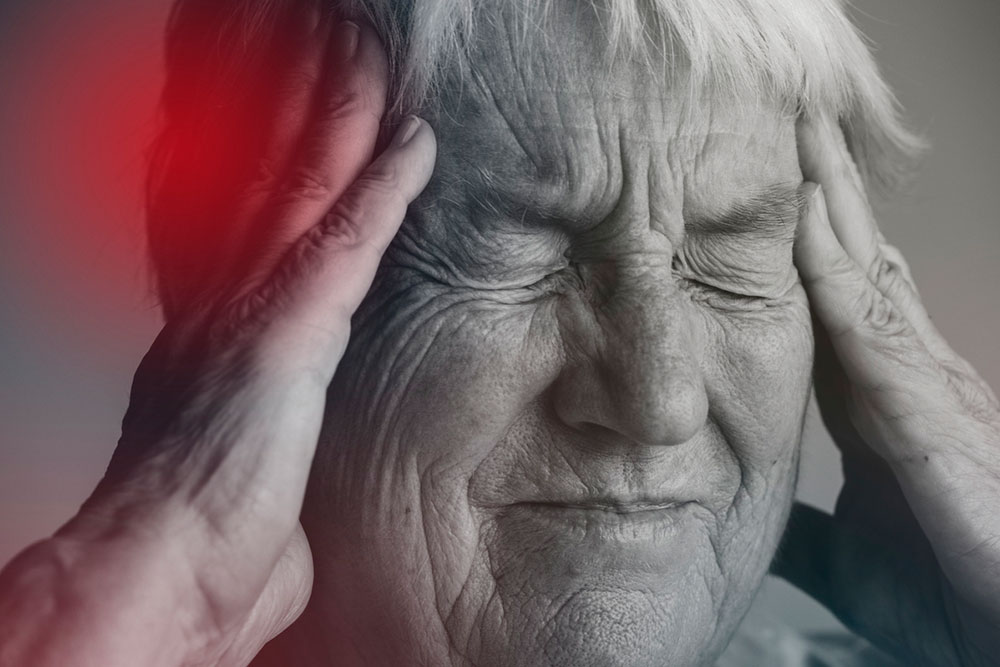What It’s Like To Struggle With Schizophrenia
Published on July 31st, 2017
Updated on January 4th, 2024

Schizophrenia is a serious condition that has a major impact on a person. It is a mental health disorder that can cause many alarming reactions. These reactions are seen in a person’s thought processes, behaviors, symptoms, and experiences.
Living with schizophrenia is challenging. The condition causes cognitive and emotional symptoms. These symptoms affect a person’s quality of life. They can also be alarming to loved ones and people in the affected person’s immediate space.
A condition of schizophrenia can also cause psychotic symptoms. These symptoms can be dangerous for affected people and those around them. Because of this, schizophrenia is not a condition that should be taken lightly.
Sponsored by

Choose a therapist to work with and start healing with 20% off from BetterHelp.
Click HereSchizophrenia needs to be taken seriously. It is important to have proper education about what it means to have schizophrenia.
It helps to learn about the warning signs, symptoms, and causes of schizophrenia. Affected people who learn about this condition and the treatment options available for the condition can live healthy lives.
Symptoms Of Schizophrenia
Schizophrenia affects how a person thinks and feels. It also affects a person’s ability to function. Symptoms of schizophrenia are intense. They can be hazardous to the affected person and others without proper treatment.
To be diagnosed with schizophrenia, a person must suffer from symptoms for at least 6 months. A person who briefly experiences symptoms may be suffering from:
- Brief psychotic disorder, or
- Schizophreniform disorder
Symptoms can occur at varying severities. They typically begin to show in early adulthood.
The following are symptoms of schizophrenia:
- Hallucinations
- Delusions
- Incoherent speech
- Disorganized speech
- Frequently going off-topic while speaking
- Catatonic behavior
- Flattened emotional affect
- Paranoia
- A decline in functioning (work, school, hygiene, social, etc.)
- Bizarre or unusual beliefs
Symptoms can be either chronic or episodic. This means that they may either stay constant or fade and resurface in episodes.
Causes And Risk Factors Of Schizophrenia
There are different causes and risk factors associated with this condition. Such factors that may cause the condition include:
Genetics
Schizophrenia can run in families. There is a genetic factor that increases the risk of a person suffering from the condition.
Having a family member with schizophrenia or another type of mental illness increases the risk of schizophrenia. This is especially the case with the following conditions:
- Bipolar disorder
- Depression
- Autism spectrum disorder
Birth Complications
Birth complications may increase the risk of schizophrenia.
The following may put a fetus at higher risk of the condition:
- Infection
- Malnutrition
- Diabetes
Neglect
Growing up in a neglectful or unsafe environment can increase the risk of schizophrenia.
Environment
Environments that involve the following increase the risk of a person developing schizophrenia:
- Abuse or trauma
- Emotional, physical, or mental neglect
- Malnutrition
- A lack of safety or security
The prevalence of schizophrenia tends to be higher in low-income areas. It also tends to be higher in urban areas.
Life With Schizophrenia
If left untreated, schizophrenia can have a severe impact on a person’s quality of life. The symptoms experienced with this condition make day-to-day living a challenge.
Many people with schizophrenia are exhausted by their symptoms. Because symptoms can be scary, the experience tends to be overwhelming.
Untreated schizophrenia can impact different areas of a person’s life. Many people with the condition struggle with keeping up with their responsibilities. School, work, and personal affairs become a challenge.
Affected people may also struggle with making and maintaining meaningful relationships with others. Many people with schizophrenia tend to feel misunderstood. They can also feel isolated from others and may suffer from a poor self-image as a result of their condition.
Seeking professional treatment can help to avoid these challenges. Proper treatment with a professional can improve an affected person’s quality of life.
Education about schizophrenia helps affected people feel hopeful. It also helps by ensuring affected people that recovery is possible.
Treatment For Schizophrenia
Living with schizophrenia is scary. Most people do not understand what it is like to live with the struggles that come with this mental illness.
Affected people and their families can live happy, productive lives with schizophrenia. It starts with seeking the professional help that is needed to get better. schizophrenia is a serious mental health disorder that requires long-term treatment.
A diagnosis of schizophrenia will likely need psychiatric medication. Medication will help the affected person experience fewer psychotic symptoms. Anti-psychotics are often prescribed to schizophrenia patients. They aid in decreasing hallucinations, delusions, and odd or eccentric behavior.
It is important to seek therapy in conjunction with medication. Symptoms of schizophrenia can cause emotional and social issues. These issues can make it difficult for an affected person to feel in control. Therapy can teach a person how to cope with their symptoms and the other challenges they face.
In therapy, the affected person will learn what it means to have schizophrenia. Therapy teaches affected people how to stay in control despite their symptoms and struggles.
Sponsored by

Find an affordable therapist online with 20% off from BetterHelp.
Click Here






August 7th, 2017 at 1:35 PM
In the last couple days I’ve been feeling off. I don’t like when I feel like this. It’s a scary feeling. I don’t how to make this feeling go away. I try to ignore it but it feels like it gets worse.
August 7th, 2017 at 1:44 PM
Feeling off or not like yourself can be scary, and sometimes ignoring the feeling can make it stronger. Instead, consider seeking some peer support and professional attention. A good start would be to find a mental health professional in your area.